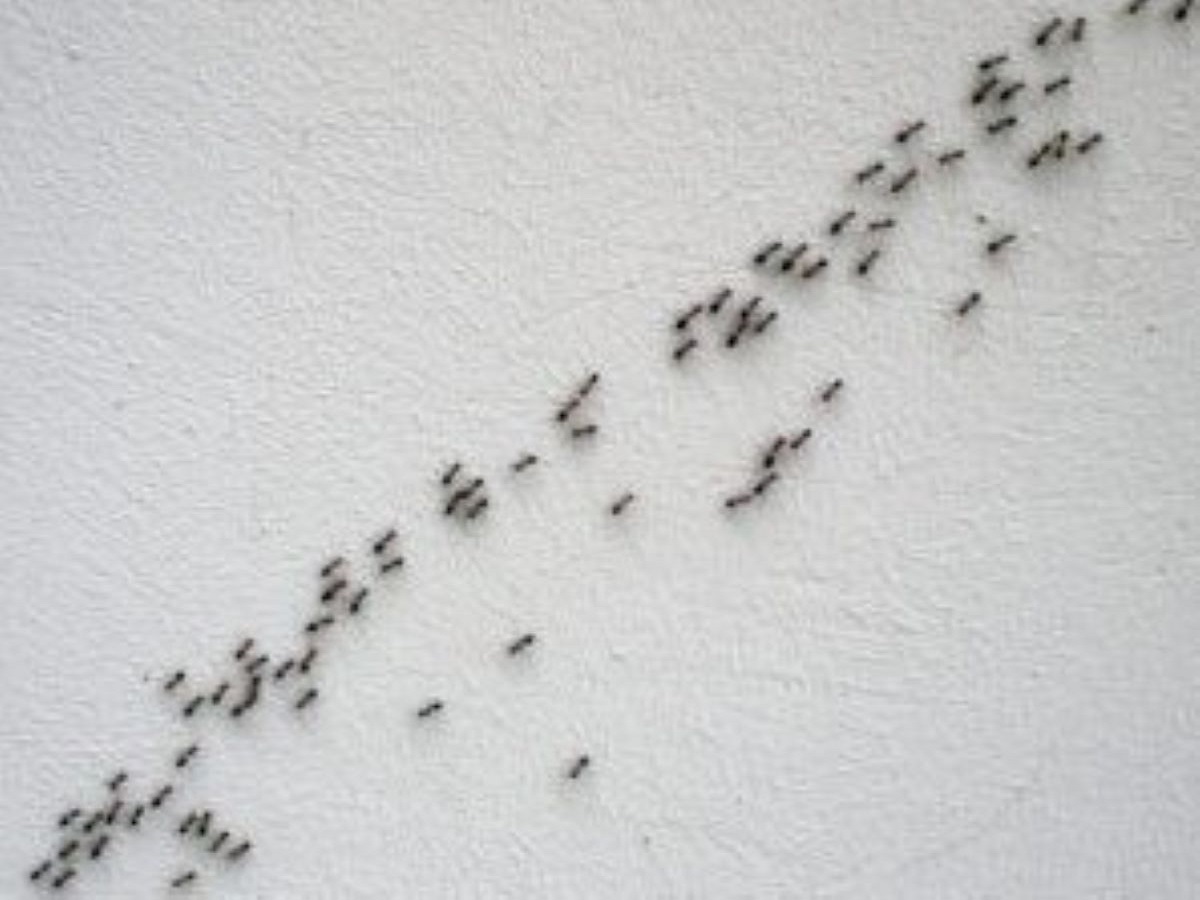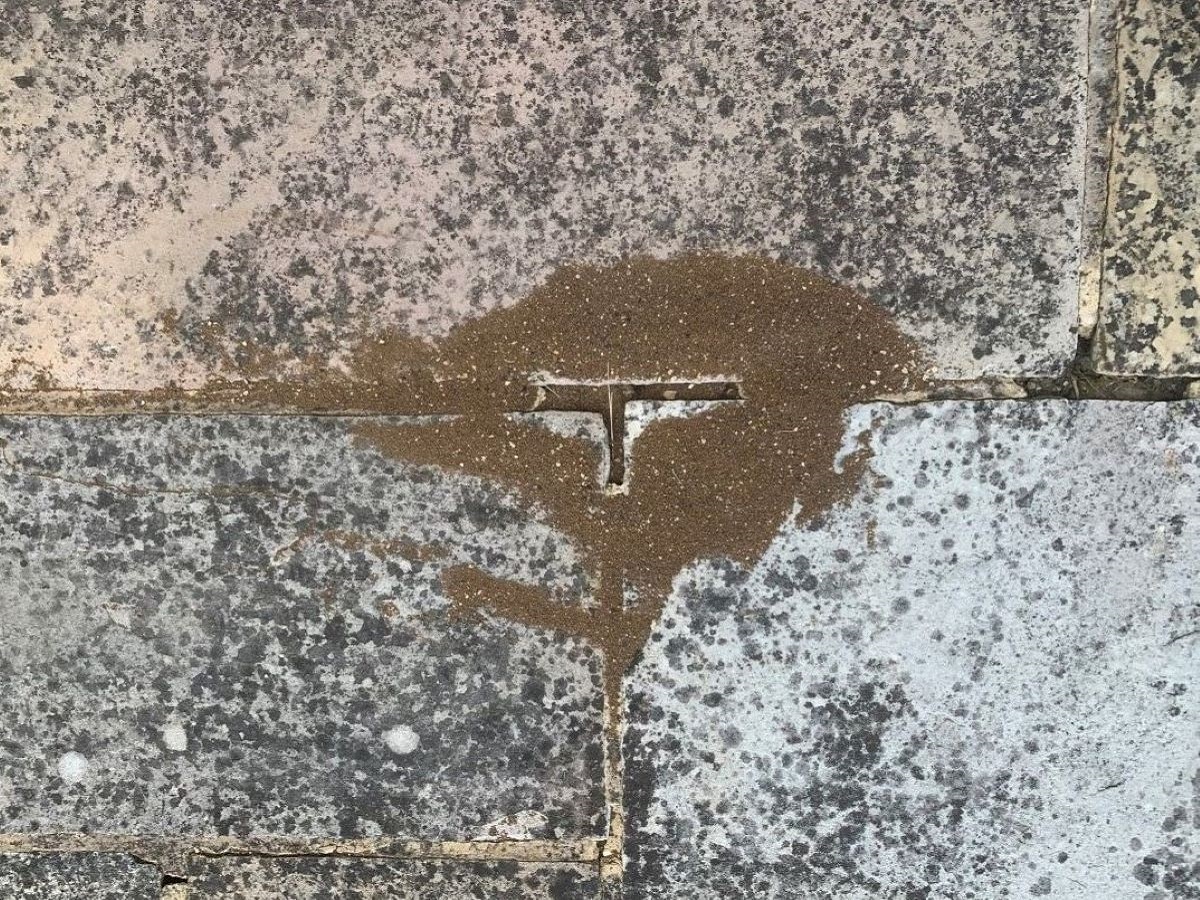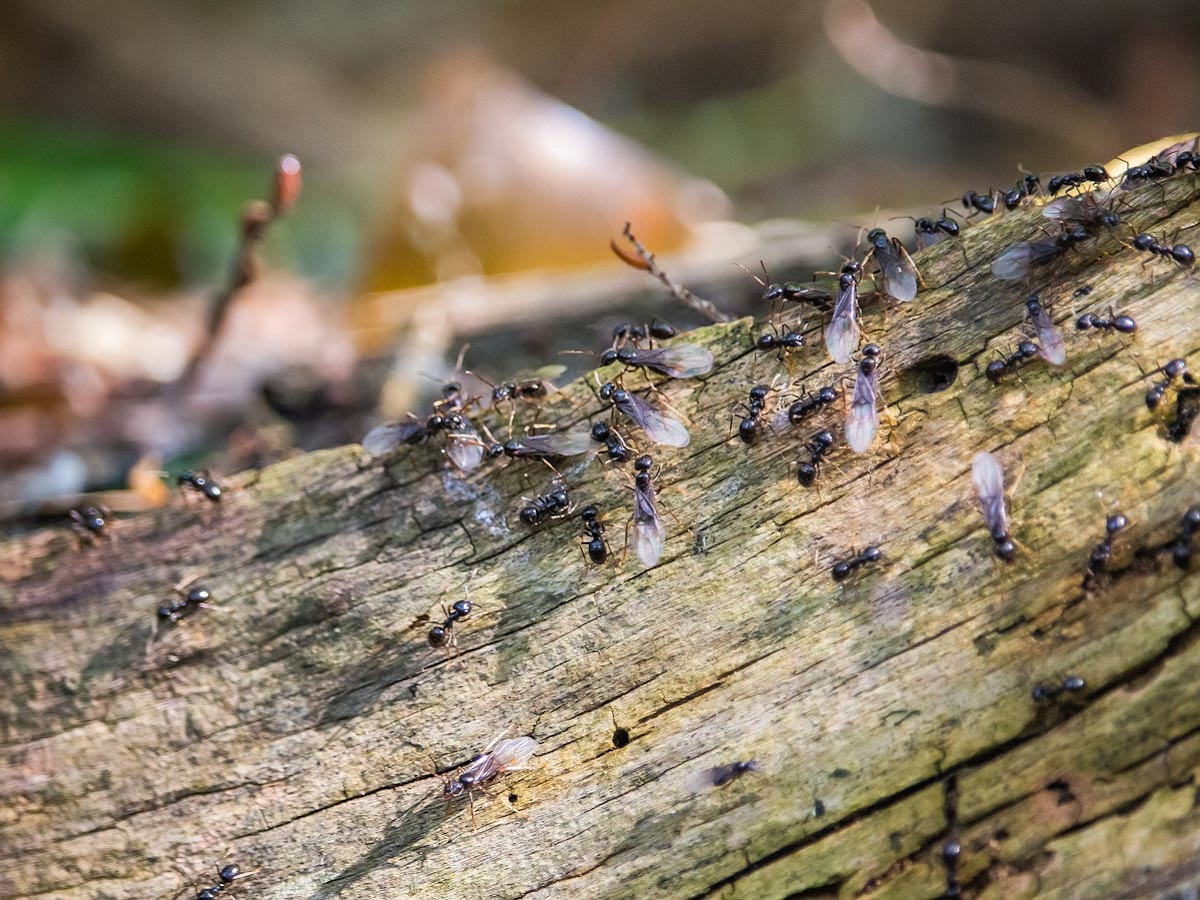Get Rid of Ants
Prices from £90 +VAT
To get rid of ants from your home or business premises call 0800 026 0308
How much does it cost to get rid of ants?
x1 Insecticide spray from £90 +VAT
x1 Bait application from £90 +VAT

Guarantee
This treatment is guaranteed for interior areas only for 1-month after the treatment, provided preparation and aftercare have been adhered to.
Ants can be a risk to human health as they carry bacteria, pathogens and parasites on their bodies, potentially transferring them to food preparation surfaces and stored food items in homes, restaurants and food processing facilities. They cause a nuisance by invading properties in huge numbers.
As the weather becomes warmer in May and June they have more energy and they start to forage for food. They start to reproduce
In gardens they de-stabilise patios by tunnelling through the sand under paving slabs and make it easy for weeds and moss to grow between them. They damage garden plants and agricultural crops by feeding on seeds, fruits and young shoots which lead to stunted plant growth and reduced yields.
Ants mainly enter properties in search of food or water. An invasion usually starts with just one ant entering through a tiny crack, gap or opening in a window, door or the foundations. They are particularly attracted to anything sweet so it’s wise to keep the floor clear of spills and crumbs. A pet’s water bowl or a potted plant provide them with water. The ant leaves behind a scent trail to mark the way to the food or water source. This trail will be followed by other ants from its colony and soon hundreds of ants will be marching into your home resulting in a massive infestation very quickly.

Why use a professional company to remove ants?
Ants colonies grow at a rapid rate throughout the summer and they constantly expand and create new nests to accommodate the growing population. If you have an infestation and measures to deter the ants aren’t working then it’s time to call us. Our technicians are trained to understand signs of ants’ activity which enables them to identify access points inside your property and locate the entrance points to the nest of the main colony.

Preparation you must undertake prior to treatment
- Don’t disturb ant nests so our technicians can see the signs of the ants’ activity.
- Drawers and cupboards where you’ve seen ants must be emptied and vacuumed or wiped down to remove dust so that we can carry out the treatment efficiently.
- Carpets and flooring where you’ve seen ants must be vacuumed.
Aftercare
- Immediately after treatment let the spray dry; don’t clean or wipe up any puddles.
- Reduce the humidity by opening windows and increase the heat to allow the treatment to work most effectively.
- Don’t touch the treated surfaces or let pets into the treated area until dry.
- If you do get insecticide on your skin wash it off immediately.
- Leave ant gel bait in place until ant activity ceases.
- Don’t wash, clean or vacuum treated surfaces for at least 2-months.
Please be aware that you may see flying ants for a short period after treatment. Flying ants are just normal ants with wings.
How our treatment works
The objective of our treatment is to kill the queen to stop the colony reproducing and getting larger. To do this we use bait and insecticide sprays designed to contaminate the ants which come into contact with the treated surfaces. The ants don’t die instantly so that when they return to their nests they contaminate the other ants and larvae and eventually they all die.
Our technician will identify the access points inside your property and locate the access points to the nest of the main colony. They will place bait and spray these areas as well as around windows, doors and walls and along the trail of ants and surrounding areas.
Eradicating the ants may take up to 2-weeks if treatment is carried out during warmer weather; in cold weather it may take up to 6-weeks as the ants will be sporadically active. Don’t disturb the ants during treatment. There may be a burst of activity before the problem subsides. Immediate improvement is always noticeable but don’t wash down or vacuum treated areas for at least 2-months.
Products we use
The technician will state which insecticide has been used on the report they give you after they have completed the treatment. Click each product to access its safety data sheet. All insecticides are biodegradable, almost odourless, non-tainting and don’t corrode or stain.
Insecticide spray
Insecticide powder
Insecticide fogging
Bait
Products to purchase from our online shop
Outcast Ant Station
Ready-to-use ant bait station, pre-filled with a gel that combines an ingredient that attracts ants and a slow-acting ingredient that kills ants. This gives the ants time to take the gel back to their colony and kill other ants. Safe to use both indoors and outdoors.
Buy Outcast Ant Stations from our online shop
Price for x3 x4g ant bait stations £10.44 including VAT + Shipping £10.00
Vazor® ICE
Vazor® ICE produces a freezing spray-jet of below -40ºC that eliminates most crawling and flying insects quickly and efficiently upon direct contact. It does not contain insecticides and leaves no residue.
Buy Vazor® ICE from our online shop
Price for x1 x500ml Vazor® ICE £23.22 including VAT + Shipping £10.00
Vazor® DE Powder
Vazor® DE Powder contains amorphous silica which acts on the outer layer of the cuticle of any insect that comes into direct contact. The outer, protective coating of the insect is disrupted and the insect dies.
Buy Vazor® DE Powder from our online shop
Prices
Vazor® DE Powder 200g puffer pack £17.82 including VAT + Shipping £10.00
Vazor® DE Powder 500ml aerosol £30.42including VAT + Shipping £10.00
Vazor® DE Powder 2kg tub £41.04 including VAT + Shipping £10.00
Facts about ants
- In the UK there are a quadrillion ants which is more than one million ants per person. There are over 12,000 ant species worldwide. Over 50 species are found in the UK, of which the most common are the black garden ant, yellow meadow ant, red ant and wood ant.
- The ant is one of the world’s strongest creatures in relation to its size. A single ant can carry 50 times its own bodyweight. The ants often work together to move bigger objects.
- Ants communicate with other ants by sending chemical signals, “pheromones”, released through their body to send messages. This includes warnings when danger is near, leaving trails leading to food sources and to attract a mate. Ants don’t have ears so they “listen” by feeling vibrations from the ground through their feet.
- In the UK, ant bites and stings are generally harmless. All species of ants have mandibles, which means that theoretically all of them can ‘bite’. The bite is actually the ant pinching your skin between their mandibles. The burning sensation or ‘sting’ is caused by the ant releasing a small spurt of acidic venom from its mouth. This can cause a small swelling or blister. Ants only bite and sting when they feel threatened.
- Ants are social insects which live in colonies. A colony, also called a formicary, is made up of one or more egg-laying queens and a large amount of female “worker” ants who tend to her, build and maintain the nest, forage for food and and care for the young. Colonies can reach 15,000 ants although most average around 7,000. A colony’s ants live in nests in the soil and are often found in flower beds and under patio slabs. A colony may comprise of several nests.
- Flying ants are just normal ants with wings. They swarm during hot and humid weather for a few hours or a few days so that male ants can mate with queens from a different colony. The larger ants are the queens which can be up to 15mm long. After mating the queens chew off their wings and look for a suitable site to nest to set up a new colony.

